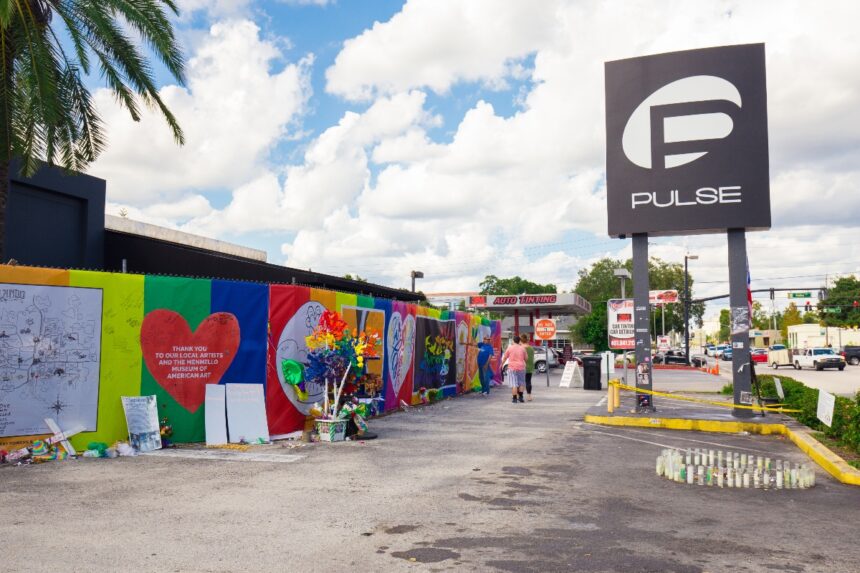The Florida government ordered the erasure of the colors of the LGBTI flag painted on a crosswalk in front of the Pulse club in Orlando, the site of one of the worst massacres against the LGBTQ+ community in U.S. history in 2016.
The decision was denounced by State Senator Carlos Guillermo Smith, the state’s first Latino and openly gay legislator, who called the action an “illegal act of vandalism” committed by the Florida Department of Transportation (FDOT).
Tribute to Pulse victims
Rainbow crosswalk outside Pulse nightclub removed overnight https://t.co/Dqj9lhJBrG pic.twitter.com/zUfbHQ88oz
– Orlando Sentinel (@orlandosentinel) August 21, 2025
Florida removes the rainbow crossing at Pulse, which had been painted as a symbol of remembrance and resistance, remembering the 49 people killed and 53 injured on June 12, 2016, when a gunman opened fire at the Pulse club.
Most of the victims were Latino and sexual minority youth.
For family members, survivors and activists, the crossing was not only a symbolic gesture, but a permanent reminder of the need for respect, security and visibility for these communities.
“This rainbow crossing was painted here not only to remember the lives that were taken from us, but also to keep safe the pedestrians and visitors who come each year to pay tribute,” Smith said in a video recorded at the site, hours after the painting was erased during the early morning hours.
Florida removes rainbow crossover from Pulse
Of course DeathSantis had Florida’s DOT paint over the Pulse nightclub memorial in Orlando in the middle of the night https://t.co/9LSHVdtFkw https://t.co/SAXOGLEYo7 pic.twitter.com/WzcvaYrYOL
– Wu Tang is for the Children (@WUTangKids) August 21, 2025
The senator accused Governor Ron DeSantis of pushing a “hostile” act against Orlando and the families affected by the tragedy.
“They did it at night because they knew it was wrong. They have insulted the survivors and the families of the victims,” Smith said.
This is not the first time DeSantis has been criticized for his treatment of the LGBTQ+ community.
During the last anniversary of the attack, he avoided making explicit reference to Latino and LGBTI victims in his official message.
Civil organizations accused the Republican president of erasing the memory of Pulse and promoting discriminatory laws.
Such as the well-known “Don’t Say Gay”, which restricts the teaching of sexual orientation in schools.
Or the Stop WOKE, which limits discussion of racism and sexism.
A measure that affects other cities
The Orlando case is not isolated.
FDOT reportedly sent letters to other Florida cities with historically visible LGBTI communities, such as Miami Beach and Key West, to demand the removal of their rainbow crosses by September 3.
If they fail to do so, he warned, they will face economic sanctions.
These provisions have generated concern among activists and local governments, which consider the crossings as part of the cultural heritage and as road safety tools that reinforce the identity of their communities.
Nine years after the Pulse tragedy, the pain still lingers for the victims’ families.
Many Hispanics in the U.S. remember that attack as a double whammy: sexual orientation and ethnicity.
The elimination of the crossover is seen by several sectors as a revictimization that deepens Orlando’s wound and calls into question the state’s commitment to inclusion.
The debate is reignited in Florida in a context of growing political and cultural polarization, where measures such as this one add to a series of restrictions pushed by the state government against the LGBTQ+ community.
Lo hicieron de noche porque sabían que estaba mal. Han insultado a los sobrevivientes y a los familiares de las víctimas
Senador Carlos Guillermo Smith























